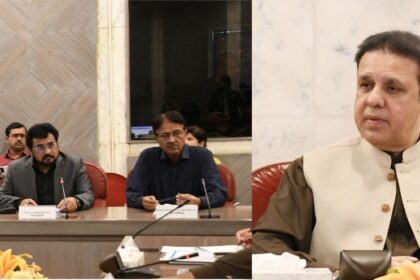A proposal to introduce reproductive health education in Islamabad schools has sparked a heated debate in the Senate. While supporters emphasize its necessity to protect students from harmful online misinformation, opponents contend the measure conflicts with Pakistan’s cultural and religious values. Due to strong disagreements, the Senate Standing Committee on Federal Education and Professional Training has deferred a vote, seeking further consultations with education experts, religious authorities, and government officials.
The Health Education (Amendment) Bill 2024, presented by Senator Qurat-ul-Ain Marri, proposes integrating mental health, physical well-being, and reproductive health education into the school curriculum. Senator Marri, alongside other proponents like Senator Aeni, argued the urgency of the bill, claiming young people already acquire distorted knowledge on these sensitive topics through social media platforms and informal channels. They urged schools to step in and provide scientifically accurate, age-appropriate educational content.
However, the proposed legislation has drawn significant criticism. One vocal opponent, Senator Kamran Murtaza, characterized it as contradictory to Pakistani social norms, stressing that reproductive health should remain within the home domain rather than becoming a part of formal school instruction. Murtaza called the proposed bill “against our social fabric,” recommending that it undergo review by the Council of Islamic Ideology before any further legislative action. He cautioned fellow senators that pushing the measure prematurely could incite widespread backlash from the community.
Other legislators also voiced apprehensions over the ambiguous wording and potential implications of the bill. Senator Afnan expressed concerns that the phrase “reproductive health” might unintentionally allow controversial or inappropriate content into classrooms. In response, Senator Aeni clarified that the legislation is specifically meant to cover fundamental biology and general health topics without venturing into ideological or social agendas.
Concerns were raised by Senator Fauzia Arshad regarding the instructional materials used for younger students, particularly graphic diagrams and imagery. To address this issue, she recommended that coursework aimed at younger groups should rely on simplified illustrations and carefully worded descriptions, ensuring clarity without causing discomfort or infringing upon cultural sensitivities.
Senator Sarwat Ali introduced a broader comparative perspective, citing educational policies from other Muslim-majority countries. While acknowledging that nations like Egypt and Saudi Arabia have opted against similar curricula, he highlighted the successful implementation of structured reproductive health education in countries such as Indonesia and Malaysia. Senator Ali referenced data from international surveys indicating strong parental support: 96% in Indonesia and 86% in Turkey reportedly favor structured health programs. He further proposed accommodating conservative sensibilities by providing separate classes for boys and girls, taught by teachers of the same gender.
Despite diverse positions, senators appeared united on certain aspects. Most notably, a consensus emerged around restricting reproductive health education exclusively to students in Grade 8 and above, conditioned on explicit written consent from parents. This measure would ensure parents retain full authority and involvement regarding their children’s education.
Given these pronounced divisions, the Senate Standing Committee on Federal Education and Professional Training, chaired by Senator Bushra Anjum Butt, postponed any firm decision on the bill. The committee resolved instead to expand consultations with prominent religious scholars, curriculum experts, education stakeholders, and representatives from the Ministry of Education before proceeding further.











